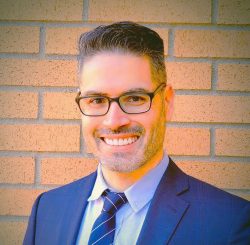This content was published: January 28, 2021. Phone numbers, email addresses, and other information may have changed.
Despite historic challenges, PCC successfully puts together next Strategic Plan
Photos and Story by Sarah Rose Evans
For more than a year, amidst a global pandemic, remote operations, racial unrest and regional wildfires, Portland Community College worked on developing a new Strategic Plan with a five-to-ten year vision.
A Strategic Planning Steering Committee, made up of 27 internal and external members, led the process, with substantial input and support from throughout the community. Throughout the process, students, faculty, staff, community leaders, board members and interest groups contributed their insight. Prior to the pandemic, in-person listening sessions at six different PCC campuses or centers hosted nearly 400 people, followed by the distribution of a web survey that garnered nearly 1,200 responses. Each effort helped to identify the college’s strengths, weaknesses, opportunities and concerns.
Strategic Planning 2.0
Through a long and inclusive process of engaging the community, students, staff and faculty, PCC centered on these key areas for its next five-to-10 year Strategic Plan:
- Belonging: Transforming our learning culture toward creating a sense of belonging and well-being for every student.
- Delivery: Redefining time, place, and systems of educational delivery to create a more learner-centric ecosystem.
- Enterprise: Cultivating a long-term sustainable college enterprise.
- Workforce: Responding to community and workforce needs by developing a culture of agility.
Key findings from the data analysis forged four major strategic areas of focus — “Belonging: Transforming our learning culture toward creating a sense of belonging and well-being for every student”; “Delivery: Redefining time, place, and systems of educational delivery to create a more learner-centric ecosystem”; “Enterprise: Cultivating a long-term sustainable college enterprise”; and “Workforce: Responding to community and workforce needs by developing a culture of agility.”
The pandemic’s arrival necessitated the move to online collaboration; this expanded to include four work groups around each focus area, plus the steering committee. The work groups gathered input from more than 100 additional faculty, staff, students and community partners.
Despite unanticipated obstacles thrown their way, the steering committee was able to finalize a draft of the strategic plan in fall 2020. In November, PCC’s elected board of directors approved the final version.
“PCC has a responsibility to adapt to shifting external environmental factors as a means to continue meeting the needs of the community,” said Sylvia Kelley, the college’s executive vice president. “What we’ve developed is a strong, visionary, proactive strategic plan that will enable the college to make progress in each of the identified focus areas, all of which are critically important to our mission and service lines. Now we’ll be working on the specific action plans and initiating the implementation efforts — with the intent of aligning our biennial budget with our priorities.
“I’m excited by what we’ve created, as well as the impact our work will have long term,” she added.
The revised Strategic Plan builds upon the college’s Yes to Equitable Student Success work, a framework that establishes inclusive systems and quality support for students throughout their journey at PCC. This alignment will ensure a comprehensive and coordinated approach to help students achieve their goals and improve equitable student outcomes.
The four areas of focus for the Strategic Plan each have five initiatives, and the pandemic has only heightened the importance of developing and implementing these goals. One of the initiatives, under the “Delivery” area of focus, will concentrate on the implementation of digital learning support in multiple modalities, including online, hybrid, remote and on-campus delivery formats.
“This particular aspect of the plan is crucial, to meet the wide-ranging needs of our diverse learner populations,” said Loraine Schmitt, PCC’s executive dean of instructional and student affairs innovation and technology. “Students have varied learning styles, life circumstances, needs, and abilities. Delivering courses offering a variety of formats provides all students with the greatest opportunity to access a college education and reach their goals.”
She added that the importance of a flexible and varied class schedule, with multiple modalities, became clear as the pandemic shifted classes online.
“It is vital that we move in this direction as the digital transformation of our world continues to change the way we live, work, and learn,” said Schmitt.
Finally, the strategic plan has prioritized creating a sense of belonging, which is a marked shift from past plans.
“Fostering a sense of belonging is foundational to the success and retention of every student, faculty, and staff,” said Jeremy Estrella, associate vice president of academic and career pathways. “When an individual feels like their lived experience is valued, their culture and self are reflected in the college’s academic and social environment, and there’s mentorship embedded in onboarding; a sense of belonging develops. I am proud of the college prioritizing a sense of belonging in the strategic plan to achieve student/ faculty/ staff retention and equitable outcomes.”


